In the Accounts module I want to add a Date of last meeting field and have it auto populate. Is there a way to have it locate the last meeting held and put the date of that meeting in the field? Thanks so much
In the Accounts module I want to add a Date of last meeting field and have it auto populate. Is there a way to have it locate the last meeting held and put the date of that meeting in the field? Thanks so much
Hi Amy,
You can achieve this functionality by creating a few calculated fields via Studio.
Meetings Module
date(ifElse(equal($status,"Held"),$date_start,""))This formula checks to see if the status is held, and if so, inherits the start date of the meeting.
Accounts Module
maxRelatedDate($meetings,"meeting_held_date_c")This formula reviews all related meetings to the account to return the highest date value in the previously created custom field.
Once both fields are created, any meetings saved will populate the custom field if their status is held. Similarly, any accounts saved will populate the highest related date from the custom field.
Any pre-existing records will be empty. To remedy that issue, you will need to perform 1 of the following operations on the existing leads:
I hope this helps!
Chris...thanks so very much for your help!!!!!!!
Amy Frybarger
Sales and Marketing Coordinator
Air Lift Company
Lansing, MI
Please note that due to bug #76484 there's no 'Recalculate Values' option in the Meetings list view mass action dropdown.
As a work-around you can do a Mass Update and update the Tags with an empty value (make sure to select the "Append Tag(s)" checkbox in order to not whipe out existing Tags).

hi Chris Raffle
Is there a way to only use one custom field on Accounts module by using
maxRelatedDate($meetings,"date_end")and include the
ifElse(equal($status,"Held")within that as well?
hi Chris Raffle
Do you know of how to get the opposite, in other words instead of
maxRelatedDate get minRelatedDate
an example would be to calculate the earliest Opportunity Closed Won date for each customer.
.
CRM Business Consultant
Hi ,
There is a Sugar Logic function that achieves this use case called rollupConditionalMinDate. I'm not sure on when this was introduced as it doesn't appear to be in the documentation for Sugar 12. I confirmed it is in Sugar 11; it may be available in earlier releases. On the Accounts module, I created a date field with the following formula:
rollupConditionalMinDate($opportunities,"date_closed",createList("sales_status"),createList("Closed Won"))
After adding the field, I then recalculated values on the account records and confirmed that the earliest closed date of an account's won opportunities populates as expected.
hi Chris Raffle
Thank you very much for that, I had totally missed that rollupConditionalMinDate existed, as I expected minRelatedDate to exist.
Conversely, rollupConditionalMaxDate doesn't exist either
In case it helps I can also confirm for anyone else wondering, rollupConditionalMinDate exists in v10 onwards.
.
CRM Business Consultant
Hey Chris,
Is there a way to find the related record with the highest date value and then copy fields from that record? For example, I would like to copy the Sales Stage of the most recently created related Opportunity.
Thanks!
Hi Mustafa,
I don't think there is a way you could achieve this with Sugar Logic. Sugar Logic functions do not have the means of comparing one related record to another (i.e. give me the most recent created record).
This specific use case can be achieved in SugarBPM though. Here is how I would build the process definitions:
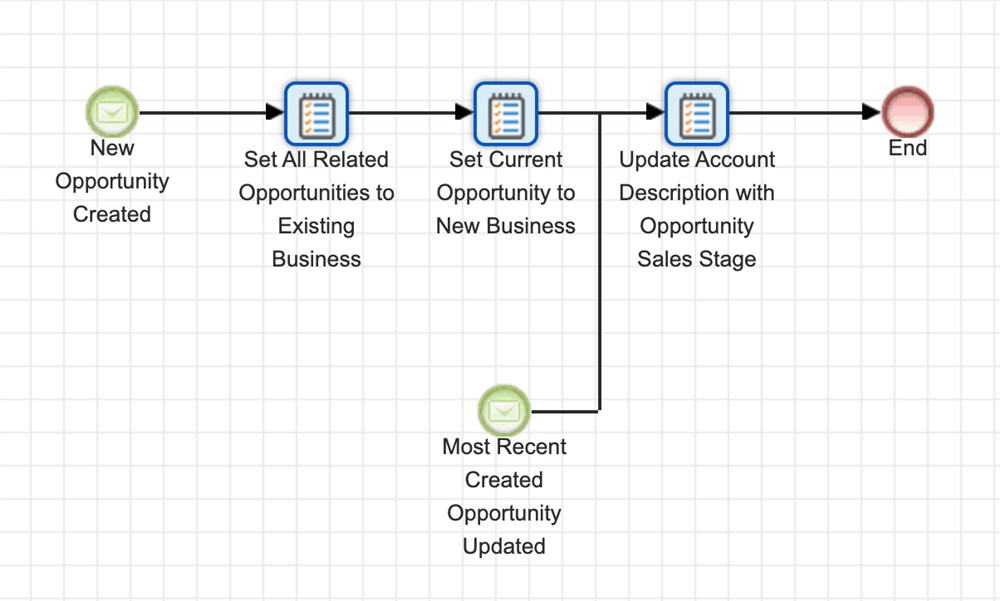
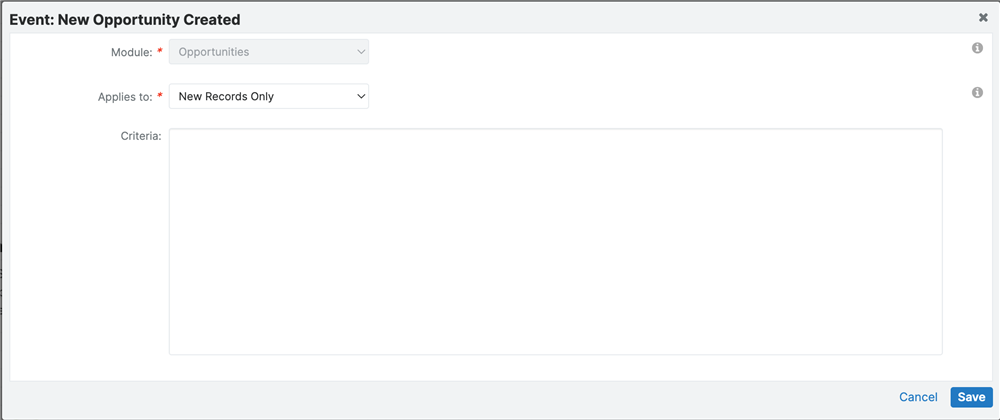
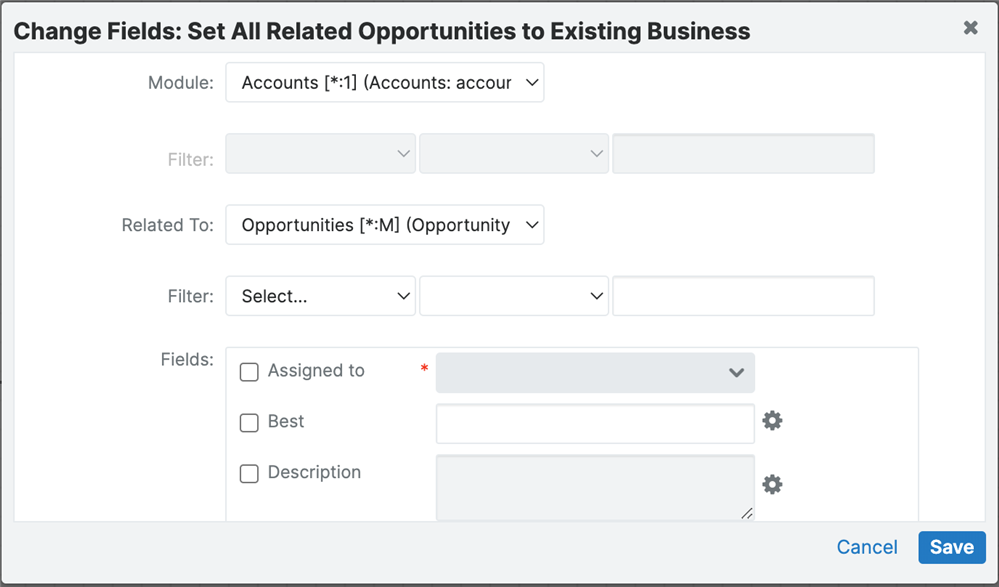
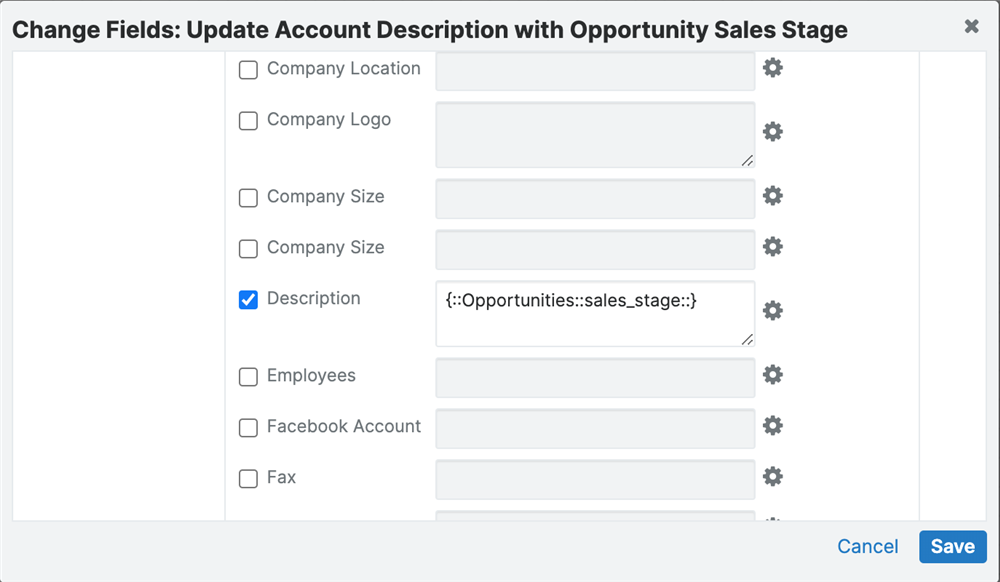
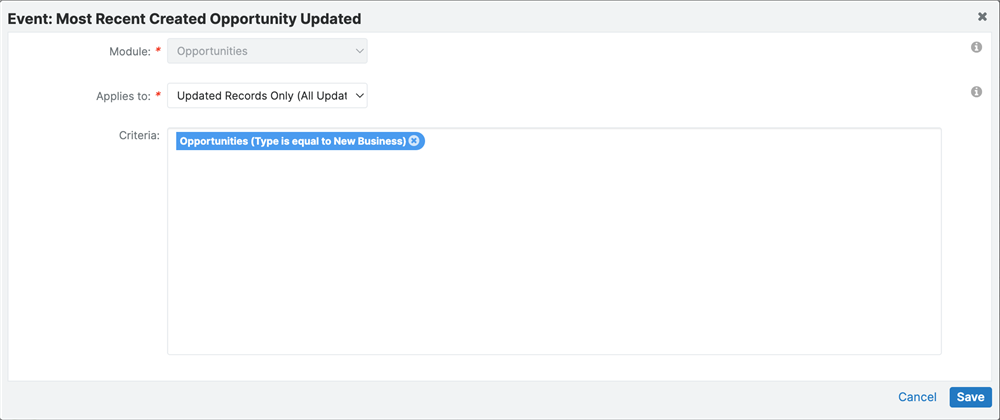
This definition would ensure that only the most recently created opportunity will update the account record with its sales stage value. I caution that this is a very specific use case though. If you had to handle a scenario where you had to make comparisons between the related records (e.g. copy the sales stage of the opportunity with the nearest expected close date), then this solution would not suffice. Much like Sugar Logic, SugarBPM is not equipped to handle comparisons between related records. Your best solution for those more complex comparisons would be a custom-developed logic hook.
Chris
Hey Chris - Thank you so much for your help! That's a perfect solution for my use case and it's working well after configuring on my end. You rock!